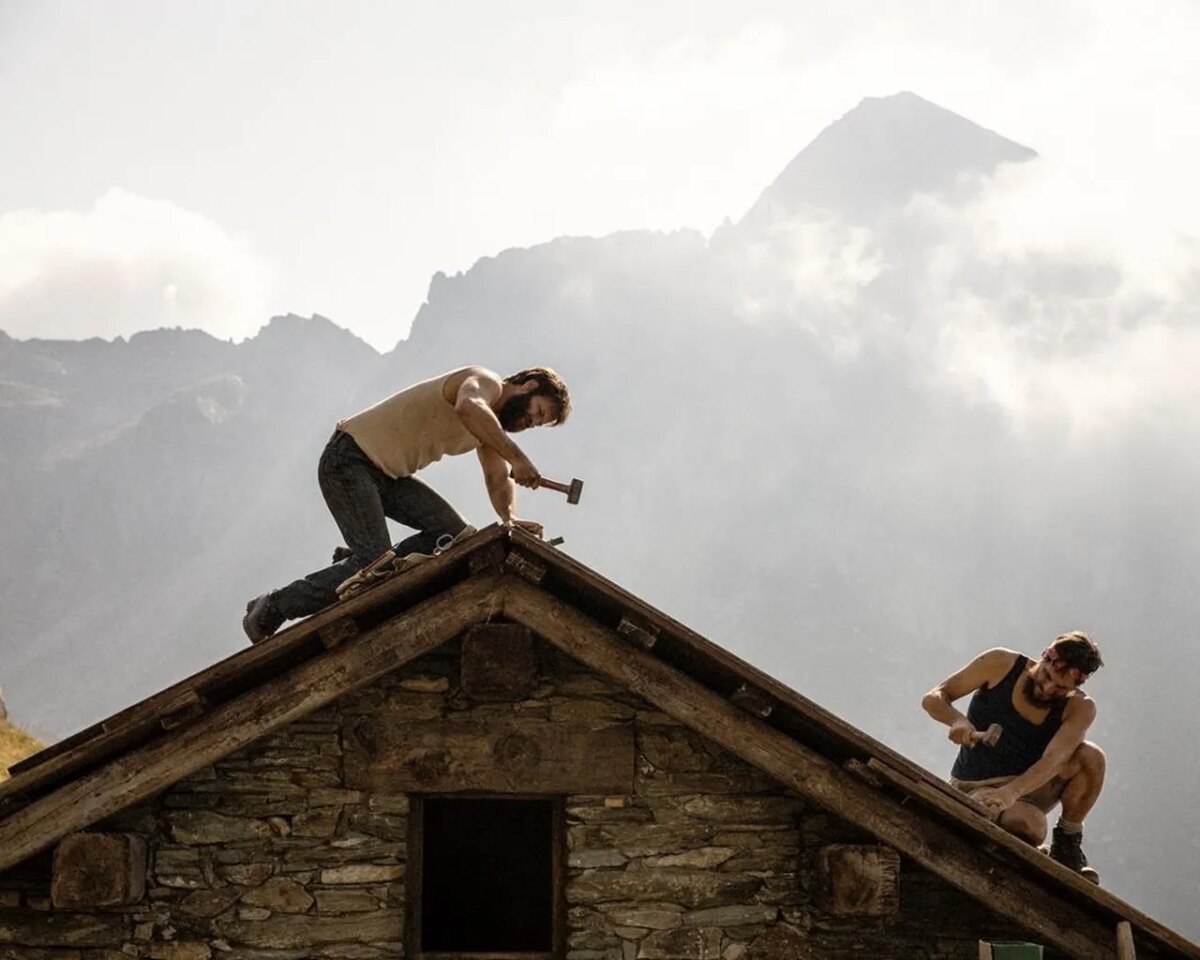
Seasons and years blow through the high Alpine peaks of the decades-spanning “The Eight Mountains.“ But a warm, abiding glow persists throughout this tender, even restorative epic of male friendship.
The film, by Belgian filmmakers Charlotte Vandermeersch and Felix van Groeningen, is a stunning, often profound and frequently jaw-droppingly gorgeous tale of two friends from childhood through adulthood set against the Italian Alps. Vast and intimate at once, their luminously languid adaptation of Paolo Cognetti’s bestseller reaches sublime heights.
“The Eight Mountains,” which last year won the jury prize at the Cannes Film Festival, isn’t hurried. The ebbs of its two-and-a-half hours are sometimes a little too placid. But the passage of time — what changes, what endures — is much the subject of the movie. Just as the film’s near-sole setting — a remote mountain cabin beneath the peaks of northwestern Italy — beckons Pietro (Luca Marinelli) and Bruno (Alessandro Borghi) throughout their lives, the intoxicating atmosphere of “The Eight Mountains” is a cherished retreat I’m already eager to revisit.
When we first encounter Pietro and Bruno, they’re 11-year-olds. They come from different backgrounds. Pietro’s family is middle-class, lives in Turin and only vacations in the Alps. Bruno’s family is hardscrabble and working class, and live year-round in the mountains. They become fast friends immediately, though, and it would hard to imagine a more idyllic rendering of childhood than Pietro and Bruno’s mountain playground. (One honorable mention: Pixar’s “Luca,“ just a little further south from here.)
As wide-screen as the surroundings are, the Belgian filmmakers Vandermeersch and van Groeningen, with cinematographer Ruben Impens, shot “The Eight Mountains” in boxy Academy ratio. Somehow, this only enhances the high-mountain splendor of the film, while at the same time drawing its characters closer together. The hills, you might say, are alive.
And the music is a big part of that. “The Eight Mountains” is scored by the Swedish songwriter Daniel Norgren, whose dreamy, organ-inflected folk songs radiate throughout the film. It might seem too much to compare the effect to Leonard Cohen soundtracking “McCabe and Mrs. Miller.“ But in a similarly rural film where much goes unspoken, Norgren’s serene music voices something ethereal, compassionate and timeless. The songs combined with such magnificent images produced a soulful, magical alchemy.
Most of the film takes place when Pietro and Bruno are in their 30s. By young adulthood, they’ve grown apart. They live in different economic realities. The mountains mean different things to them. It’s not a vacation or a refuge for Bruno; it’s his life. Pietro’s father (Filippo Timi), a pivotal figure in the early childhood scenes, dies having spent his life a workaholic. We get the impression his fleeting few weeks at the mountain cabin were the only ones that mattered to him.
But Pietro’s strained relationship with his father — and Bruno’s closeness to him — continues to shadow the movie. “The Eight Mountains” is richest in its first half, when it’s foremost a father-son tale. After years away, Pietro, a writer, returns to help Bruno (now a bearded mountain man) rebuild the cabin. It’s a project of rehabilitation, inside and out, and of reconciliation with his father’s unrealized Alpine dreams.
But in tracking the book, Vandermeersch and van Groeningen go for something more novelistic. Some pains melt away. New ones emerge. Pietro travels the world. Bruno stays, stubbornly. He falls in love, starts a family, but struggles to make ends meet. Pietro resolves to return every summer. Different as they are, the bond they share is immense.
Their lives remain irrevocably intertwined — Marinelli, the talented “Martin Eden” actor, and Borghi, have a stirring rapport — even if their inherent differences are never resolved, and never could be. I’m tempted not to say too much about how “The Eight Mountains” evolves, though, at the same time, the few plot points matter little. Life moves along, with fluctuations of fortune, shifting definitions of home and cyclical drifts from summer to winter, and back. The Alpine idyll that Pietro’s father pined for and that Bruno devotes himself to, ultimatley, remains tragically out of reach. Only the mountains endure.
“The Eight Mountains,” a Janus Films and Sideshow release is not rated by the Motion Picture Association. In Italian. Running time: 147 minutes. Three and a half stars out of four.
JOIN THE CONVERSATION
does not endorse these opinions.













